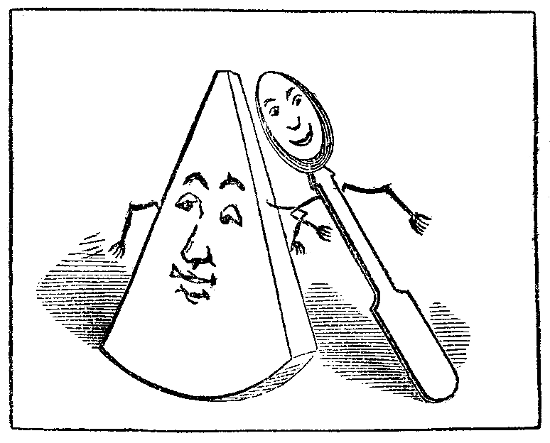Poker Term The Nuts Origin
The term 'nuts' in poker — referring to the best possible hand — is of obscure origin. One commonly shared explanation dates back to the Old West and the early days of poker, when rules regarding 'table stakes' weren't so strictly observed.

Definition of Nuts In the poker vernacular, 'the nuts' is the best poker hand possible, an unbreakable, unbeatable arrangement of cards. The nuts vary between formats and even individual hands, where circumstances dictate the top possibility. In other words, the nuts, or 'nut hand,' is the greatest potential poker hand for a given situation. Definition of Got The Nuts What does the term 'I've got the nuts' mean in the world of poker? What is the definition of 'I've got the nuts'? In poker, 'having the nuts' means that you have the absolute best hand possible. When you have the nuts, no other hand can possibly beat you. For instance - let's say that you are playing at your local casino.
According to Elkan Allan and Hannah Mackay, authors of The Poker Encyclopedia, 'the phrase evolved in the frontier states of the nineteenth century when chips or cash were only some of a huge number of goods that could be wagered at the poker table.'
'If a player got so deeply embroiled in a hand that he'd run out of funds, he would often end up betting his horse and wagon, which were represented in the pot by the nuts and bolts of the wagon wheels themselves.'
It's a neat story — and it gets repeated a lot — although it's hard to know for sure if it's the true source of the term. In fact, if you think about it, here the word is being referring to a bet and not a hand, although perhaps being willing to bet the nuts from your wagon's wheels is something a player should only do with the 'nuts.'
Less difficult than figuring out where the 'nuts' came from is identifying what the nuts would be in a particular poker hand, although sometimes certain boards and situations can be a little tricky. This week's quiz presents eight poker hands, asking you in each case to identify which hand represents the nuts or best possible hand.
The origin of the term 'nuts' is in some dispute, since it has been in use since before poker lingo was recorded, but the most common story is that it comes from the American Old West.
Six correct answers earns a passing grade. When finished check 'Top results' to see if your entry was the 'nuts' compared to others'. If you're signed into your PokerNews account, your username will appear on the leaderboard. Don't have one? Click here.
 Nuts - The best possible holding given the situation.
Nuts - The best possible holding given the situation. When a player makes the best hand possible it is commonly referred to as “the nuts.” When a player makes the nuts, the term “nut” is often used as an adjective to describe the hand that was made. For example, if the unbeatable hand was a flush, that player would hold “the nut flush,” and if it were a straight, that player would hold “the nut straight.” In certain situations, a set can be the nuts.
When a player makes the best hand possible it is commonly referred to as “the nuts.” When a player makes the nuts, the term “nut” is often used as an adjective to describe the hand that was made. For example, if the unbeatable hand was a flush, that player would hold “the nut flush,” and if it were a straight, that player would hold “the nut straight.” In certain situations, a set can be the nuts.Holding the nuts is an enviable spot to be in, but it is important to recognize that all nut hands are not created equal. If you make a nut hand that nobody else can even tie, you have “the exclusive nuts.” An example of this would be if you were playing Hold’em and held A♣ J♣, and the board read T♣ 4♣ 3♣ Q♦ K♦. In this situation, your ace high flush would be the exclusive nuts, because you cannot be beaten or even tied, given the board. In the alternative, it is also possible to make the nuts in a non exclusive fashion, depending upon the layout of the cards. For example, if the board read T ♥ 4♥ 3♣ Q♦ K♦, instead of T♣ 4♣ 3♣ Q♦ K♦, you would still have made the nuts with A♣ J♣, which completes an Ace high straight. You still have the nuts, but you do not have the exclusive nuts, because any other ace-jack can tie your hand, resulting in a chopped pot. This happens relatively infrequently in Hold’em games, and the non-exclusive nuts is still a monster hand that you can raise and reraise with.
This is not necessarily the case for all nut hands in all poker games. If you play hi/lo split games, like Omaha Eight or Better (O8), you will have to take a different approach to low nut hands than you do with high nut hands. One reason for this is that Omaha High/Low players must use exactly two of their hole cards when they form their hands, but they each hold four hole cards yielding six possible combinations. This often leads to multiple players making the same nut low during the same hand. Since Omaha High/Low is a split pot game, when this occurs, all eligible nut low hands must share the low side of the pot equally. This means that each player who holds the nut low could realistically get only 1/4th, 1/6th, or even 1/8th of the pot, depending upon how many other players are also holding the nut low. As the fraction of the pot you are entitled to shrinks, so does the return on the money you’ve invested into the pot. When multiple players make the same low, the return on investment (ROI) can frequently be negative. This means that you can end up putting in more in bets than you receive in winnings at the conclusion of the hand, and so you lose money. When you cannot win the high side of the pot, and you have to share the low side with another player, it is called “getting quartered.”

Poker Term The Nuts Original Cast
Because the risk of getting quartered is so high in Omaha High/Low, you need to be careful about how aggressively you bet nut low hands, especially if you do not have much of a chance to win the high side. Costing yourself bets by overbetting or raising a nut low hand when you are getting quartered is a frequent rookie mistake, and making it is almost guaranteed to annoy the other person who has made the nut low. In many situations, the nut low is often weak enough in Omaha High/Llow that you should opt to check and call rather than bet or raise. In Pot Limit Omaha Eight or Better (PLO8) the dry nut low is often so weak that it should be mucked outright when facing a strong bet.
Usage: Nut Full House, Nut Straight, Nut Flush, Nuts On The Flop, Nut high, Nut Low
Previous Poker Term: No-Limit
